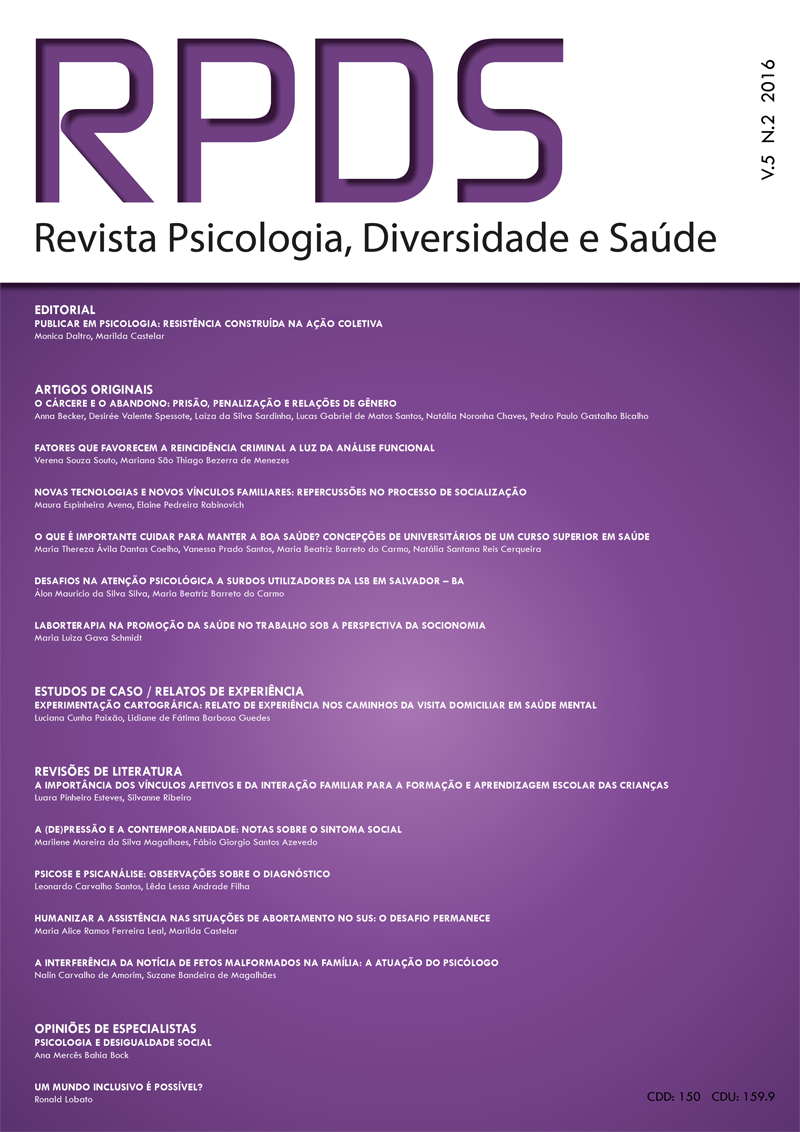CHALLENGES IN PSYCHOLOGICAL ATTENTION TO DEAF USERS OF LSB IN SALVADOR - BA
DOI:
https://doi.org/10.17267/2317-3394rpds.v5i2.1070Keywords:
Accessibility to health services, practice (psychology), deafnessAbstract
This study aimed to meet the challenges related to psychological attention to deaf people who use the LIBRAS as a means of communication. To collect the data were accessed psychologists and deaf users of LSB through two semi structured interview scripts, one in Portuguese and another in LSB, using as methodology content analysis. It was observed that the search for psychological care for the deaf community find barriers, both for their autonomy in society as related to communication with this professional. It is also discussed about the participation of LSB interpreter in the context of psychological attention and possible ethical implications, the learning of Brazilian Sign Language in the formation of the psychologist and the engagement of psychologists and deaf in the elaboration of public policies on the subject. It is concluded that the lack of sign language is still a challenge to service for the deaf, contributing to psychological distress, and is notable lack of participation and involvement of deaf and psychologists in social movements to discuss public policies that cover psychological care for the deaf.



